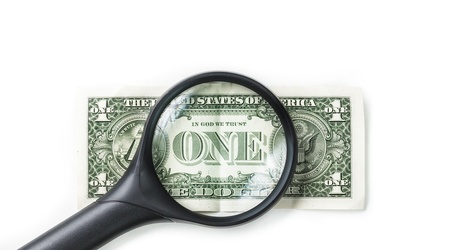Is your company considering corporate charities? Be careful because some charities run afoul of arcane tax laws. Others are sloppily managed. Some overcompensate their executives. Still others care more about attracting celebrity spokespeople or big corporate donors than fighting for their chosen causes. Below are some examples of the various ‘shades of gray’ charities can fall under.
1. Children’s Wish Foundation International
By the numbers, Children’s Wish Foundation International isn’t as dodgy as some of the other organizations on this list though it did make the Americas Worst Charities List: It spends over 10 percent of its donations on direct cash assistance and provides its terminally ill clients with millions of dollars’ worth of donated items. However, it works with for-profit solicitors who keep the lion’s share of donations for themselves. Worse, these fundraisers—and their supervisors at the organization—knowingly trade on its semantic association with the famous, highly reputable Make-a-Wish Foundation of recent ‘Bat Kid’ fame in San Francisco. In reality, the two charities aren’t associated in any way. It’s unclear whether Make-a-Wish has legal standing to force a name change or limit the claims that Children’s Wish can make.
2. American Breast Cancer Foundation
Like Children’s Wish Foundation International, the familiar-sounding American Breast Cancer Foundation has no direct links with any of its more reputable peers. Until recently, it also had a dubious relationship with one of its key fundraisers. According to IRS filings, the charity’s founder paid nearly $20 million on a contract with her son’s telemarketing firm and failed to disclose the extent of the entanglement for years. After nearly a decade of tolerating the arrangement, the charity’s board finally forced her to resign.
3. Firefighters’ Charitable Foundation
Dishonest charities come in all flavors. Unfortunately, many unscrupulous foundations purport to raise funds for first responders like firefighters and police officers. The Firefighters’ Charitable Foundation (FCF) spends less than 10 cents of every dollar that it raises and takes the added step of using a broker to finalize new fundraising contracts. Said broker earns 4 percent on every donation. The relationship between the brokerage and the foundation’s leadership is unclear, but charitable-giving experts have noted that brokers are rarely necessary in the cozy fundraising world. As a rule, prospective donors should be wary of any organization that uses one.
4. International Union of Police Associations
While the International Union of Police Associations (IUPA)is technically a nonprofit, it’s structured as a subsidiary of the AFL-CIO and doesn’t accept tax-deductible contributions. As such, large donors who don’t properly report their outlays may find themselves on the receiving end of an IRS audit. Worse, the organization largely fails to meet its stated goal of providing scholarships and death benefits to surviving relatives of slain police officers. In the past decade, it paid less than .5 percent of all cash contributions to said relatives.
Note that the FCF and IUPA aren’t the only public-worker “charities” that have come under scrutiny. A number of others, including the United States Deputy Sheriffs’ Association and the Association for Firefighters and Paramedics, also have extremely low direct aid ratios. That said, there are plenty of honest charities and unions that do an honorable job of protecting the country’s brave police officers, firefighters and first responders.
5. American Foundation for Disabled Children
For years, the American Foundation for Disabled Children (AFDC) has premised its fundraising efforts on its ability to send disabled children to summer camp. According to IRS filings, the charity has yet to send a single kid away for any length of time. Although it purports to make up for this shortcoming by donating millions of dollars in secondhand toys, it has yet to provide conclusive evidence that this actually occurs. Additionally, the AFDC recently settled a California trademark infringement lawsuit that alleged “unlawful use” of a rival charity’s name and brand.
